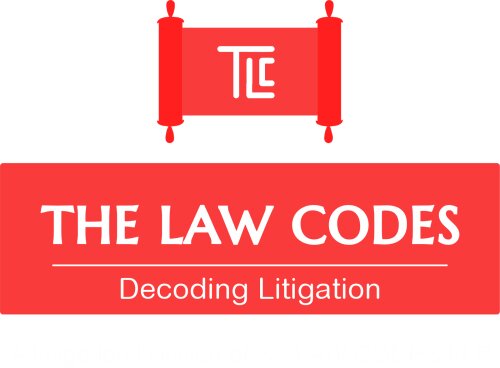Best Telecommunications and Broadcast Lawyers in India
Share your needs with us, get contacted by law firms.
Free. Takes 2 min.
Or refine your search by selecting a city:
List of the best lawyers in India
About Telecommunications and Broadcast Law in India
Telecommunications and Broadcast law in India covers a spectrum of regulations, statutes, and guidelines governing telecommunication services, satellite communications, cable networks, radio frequency allocations, and television broadcasting. The rapid evolution of technology has made telecommunications a critical sector, impacting both the economy and the lives of individuals. The regulatory framework in India is primarily governed by the Telecom Regulatory Authority of India (TRAI), the Indian Telegraph Act of 1885, the Information Technology Act of 2000, and the Cable Television Networks (Regulation) Act of 1995. These laws ensure efficient service delivery, promote fair competition, protect consumer interests, and visualize the growth of infrastructure to support the ever-growing digital ecosystem.
Why You May Need a Lawyer
In the dynamic field of telecommunications and broadcast, legal challenges can be intricate and multifaceted. Here are common situations where legal assistance might be necessary:
Regulatory Compliance: Companies need to navigate complex regulatory frameworks to ensure compliance with TRAI guidelines and other statutory provisions.
Licensing Issues: Acquiring licenses for broadcasting or operating telecommunications can be complicated, requiring legal guidance.
Dispute Resolution: Conflicts can occur between service providers and consumers, or between companies, which often necessitate mediator or legal intervention.
Intellectual Property Rights: Protecting proprietary technologies, securing patents, or dealing with copyright issues is crucial for stakeholders, requiring expert legal advice.
Contractual Disputes: Drafting, reviewing, and negotiating contracts related to partnerships, content sharing, and broadcasting rights often requires legal expertise.
Local Laws Overview
Here are key aspects of the Indian legal framework relevant to Telecommunications and Broadcast:
The Indian Telegraph Act, 1885: This is the foundational statute for telecommunications in India, regulating the establishment and operation of telegraph services.
The Telecom Regulatory Authority of India (TRAI) Act, 1997: This act establishes TRAI as the regulatory body for telecommunications, maintaining transparency and fair practice in the telecom services sector.
The Information Technology Act, 2000: This act provides a legal framework for issues related to cybercrime and electronic commerce, which intersect with telecommunications.
The Cable Television Networks (Regulation) Act, 1995: This act controls and regulates cable television networks, ensuring their operation complies with governmental standards.
Policy Guidelines on Non-news and Current Affairs TV Channels, 2011: These guidelines regulate content on television broadcasts, enforcing standards to maintain public decency and order.
Frequently Asked Questions
What is the role of TRAI?
TRAI, or the Telecom Regulatory Authority of India, regulates telecommunication services and ensures compliance with standards and guidelines. It also aims to protect consumer interests and promote fair competition.
How can I start a broadcasting service in India?
To start a broadcasting service, you will need to obtain the necessary licenses from the Ministry of Information and Broadcasting, ensure compliance with TRAI and other regulatory guidelines, and often seek legal advice to navigate this complex process.
What are the penalties for violating telecommunications regulations?
Penalties vary based on the nature of the violation but can include financial fines, imprisonment for severe breaches, and revocation of licenses.
How are consumer grievances handled in the telecom sector?
Consumer grievances are typically handled through the redressal mechanisms provided by the service providers, and unresolved issues can be escalated to TRAI or consumer courts.
What is net neutrality and its status in India?
Net neutrality refers to the principle of treating all internet traffic equally without discrimination. TRAI has implemented regulations supporting net neutrality, ensuring a fair and open internet.
Are there regulations for content broadcast on TV channels?
Yes, content broadcast is regulated under various laws, including the Cable Television Networks (Regulation) Act, which maintains standards on decency and prohibits certain kinds of content.
Is it necessary to have a legal contract for broadcasting rights?
Yes, it's crucial to have a legal contract to define the terms and conditions of broadcasting rights clearly, preventing disputes and protecting interests of involved parties.
What laws govern online streaming platforms in India?
Online streaming platforms are governed by the Information Technology Act, 2000, with some aspects regulated by policies concerning digital content and copyright.
How does one handle intellectual property disputes in telecommunications?
Handling these disputes typically involves legal proceedings, where specialized IP lawyers can help with documentation, negotiation, and, if necessary, court representations.
Are there specific regulations for mobile telephony?
Yes, mobile telephony is subject to several regulations, including licensing norms, fee structures, and adherence to quality standards as mandated by TRAI and related policies.
Additional Resources
Here are some additional resources and organizations that can be beneficial:
Telecom Regulatory Authority of India (TRAI): An essential regulator offering guidance and redressal updated policies.
Ministry of Information and Broadcasting: Governs broadcasting sector policies and licensing.
Law firms specializing in Telecommunications and Media Law: Offer necessary legal support and advice.
Telecom Disputes Settlement and Appellate Tribunal (TDSAT): Handles disputes and issues arising in telecom and broadcasting services.
Next Steps
If you find yourself needing legal assistance in the telecommunications and broadcast sectors, consider taking these steps:
Assess the Situation: Understand the nature of your legal issue and the particular domain it falls under, whether regulatory compliance, licensing, or consumer rights.
Consult a Specialist: Contact a law firm or a legal consultant who specializes in telecommunications and media law to get expert advice.
Gather Documentation: Collect all relevant documents, contracts, communications, and any other information that may help your lawyer understand the intricate details of your case.
Stay Informed: Keep abreast of developments in telecom and broadcast laws by accessing available resources and staying connected with professional networks.
Proceed with Legal Action: If necessary, proceed with legal actions or negotiations with the guidance of your legal representative.
Lawzana helps you find the best lawyers and law firms in India through a curated and pre-screened list of qualified legal professionals. Our platform offers rankings and detailed profiles of attorneys and law firms, allowing you to compare based on practice areas, including Telecommunications and Broadcast, experience, and client feedback.
Each profile includes a description of the firm's areas of practice, client reviews, team members and partners, year of establishment, spoken languages, office locations, contact information, social media presence, and any published articles or resources. Most firms on our platform speak English and are experienced in both local and international legal matters.
Get a quote from top-rated law firms in India — quickly, securely, and without unnecessary hassle.
Disclaimer:
The information provided on this page is for general informational purposes only and does not constitute legal advice. While we strive to ensure the accuracy and relevance of the content, legal information may change over time, and interpretations of the law can vary. You should always consult with a qualified legal professional for advice specific to your situation.
We disclaim all liability for actions taken or not taken based on the content of this page. If you believe any information is incorrect or outdated, please contact us, and we will review and update it where appropriate.
Browse telecommunications and broadcast law firms by city in India
Refine your search by selecting a city.














